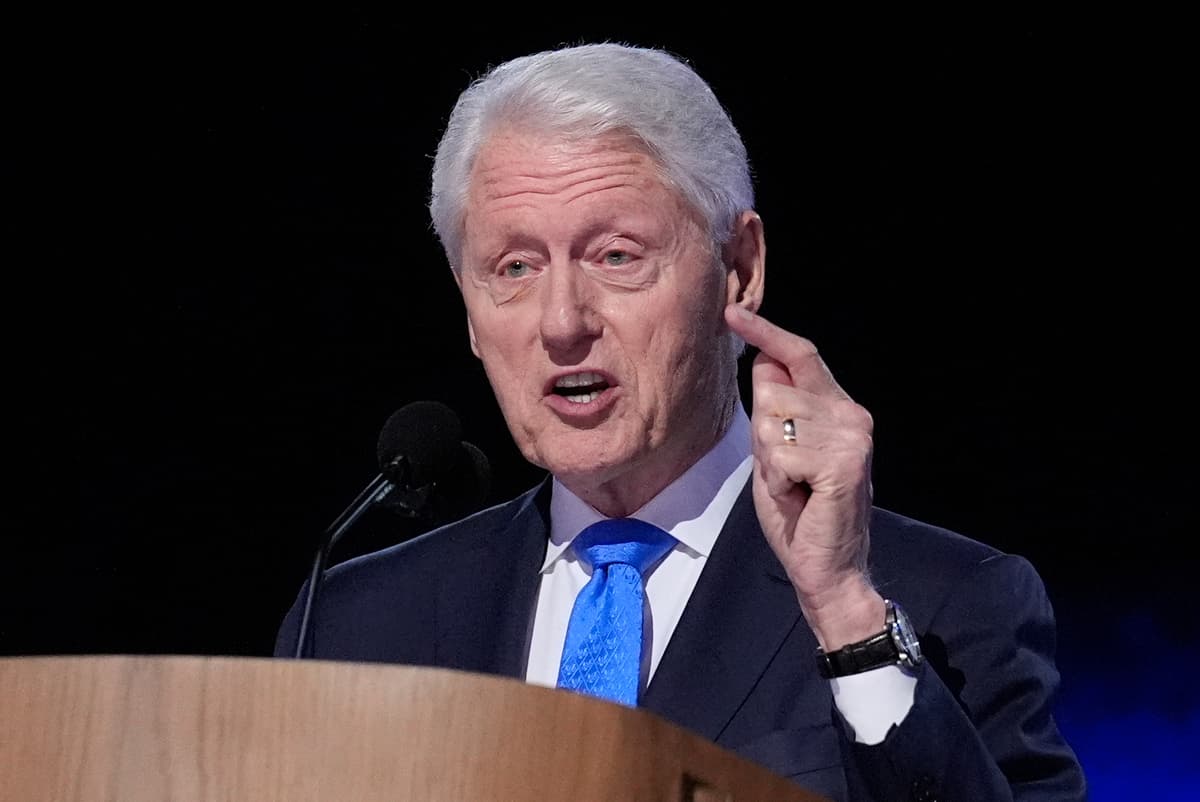When a Sister Souljah Moment Presents Itself, Who Speaks Up
Bill Clinton, with a hoarse voice, turns out to be the one Democrat prepared to confront the party’s radicals.

America keeps waiting for Vice President Harris to deliver in respect of Hamas a Sister Souljah moment. She could have turned on the left and called it out for its hypocrisy on Israel and its antisemitism. The Democrats did get such a moment this week. The only drawback is that it was delivered not by Ms. Harris but by the man who inspired the phrase — President Clinton. Too bad he’s from the party’s past and not its future.
The original famed moment occurred in 1992, when Mr. Clinton was pursuing the White House. The rapper Sister Souljah in the Washington Post proposed that “if black people kill black people every day, why not have a week and kill white people?” The next month the man from Hope, speaking to the Reverend Jesse Jackson’s Rainbow Coalition, declared that Souljah’s comments were every bit as ugly as anything spewed by David Duke.
Reverend Jackson retorted that “Sister Souljah represents the feelings and hopes of a whole generation of people,” but Mr. Clinton’s willingness to tell a truth is seen as contributing to his winning of the presidency. Now, Mr. Clinton — in Michigan, of all places — is reprising one of his signature moments. The mid-husband of the Oslo Accords turns out to be, compared to the Democrats’ current leaders, something like a hero.
Mr. Clinton told the crowd at a campaign event in Michigan that “if you live in one of those kibbutzim in Israel, next to Gaza, where people there were the most pro-two-state solution, and Hamas butchered them…what would you do if it were your family?” Mr. Clinton did have sharp words for Mr. Netanyahu. But he lit into the enemy. “Hamas makes sure that they’re shielded by civilians, they’ll force you to kill civilians, if you want to defend yourself.”
The 42nd president’s interlocutor was a pro-Hamas protester, and Mr. Clinton conceded far more than we would have liked. He did, though, declare “I got news for them,” Clinton rasped. Israelis “were there first, before their faith existed.” In July we wrote that Ms. Harris’s appearance at Prime Minister Netanayahu’s speech to Congress “could be a signal she is ready” for a Sister Souljah moment. She instead opted to speak to a sorority.
Mr. Clinton has come in for a torrent of criticism from the left, and we’ll be watching to see if he is forced to kowtow to the anti-Israel faction that appears to have Ms. Harris’s ear. It was, though, the nominee who insisted that she had “studied the maps” and warned Israel against going into Rafah. She has also been calling for a ceasefire that would triple as a defeat for Israel and a win for Hamas. She received Mr. Netanyahu in a manner best described as frosty.
If Ms. Harris is motivated in all of this by electoral gain, she could be disappointed. Polling has put President Trump, of all people, ahead among Arab American voters. Jews vote too, and enough could be repelled by her instinct for appeasement so as to depart from their patrimony in the Democratic Party to vote for Trump. Who knows if her rejection of Governor Shapiro of Pennsylvania will cost her the Keystone State — and the presidency.
Ms. Harris has had not one opportunity to have a Sister Souljah moment, but many. And not just on Israel. Witness her inability to name a single thing she would have done differently from President Biden. It may be that she will skate through. President Clinton, though, reminds that waiting for her to speak an inconvenient truth to a friendly audience appears as likely to result in satisfaction as waiting for Godot.

